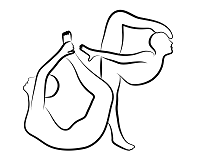 |
OpenPose
1.7.0
The first real-time multi-person system to jointly detect human body, hand, facial, and foot keypoints
|
 |
OpenPose
1.7.0
The first real-time multi-person system to jointly detect human body, hand, facial, and foot keypoints
|
Starting in OpenPose 1.6.0 (GitHub code in or after October 2019), OpenPose has considerable refactor its code to get rid of OpenCV in its headers. This makes OpenPose 1.6 headers different to previous versions and a bit harder to use. However, it allows OpenPose to be exported to other projects without requiring any third-party libraries (except in some special cases detailed below). The greatest benefit of this change: if your project already uses OpenCV, and you add your own version of OpenPose, the OpenCV version used in OpenPose and the one used in your project will not interfere with each other anymore, even if they are different versions!
While compiling OpenPose from source, the static library files (*.a for Ubuntu, *.lib for Windows, etc.) and include/ directories of all the third-party libraries detailed in doc/installation/0_index.md are required (GFlags, Glog, OpenCV, Caffe, etc.). However, when deploying OpenPose, fewer dependencies are required:
include/openpose/flags.hpp file is going to be used (e.g., when intenting to use the command-line interface).The static library files (*.a for Ubuntu, *.lib for Windows, etc.) and include/ directories are the files that must be included in your project settings. However, the runtime library files (*.so for Ubuntu, *.dll for Windows, etc.), which are always required, must simply be placed together with the final executable or in default system paths. I.e., these files are only used during runtime, so they do not require any configuration in your project settings. E.g., for Windows, you can simply copy the content of the auto-generated build/bin/ directory into the path where your executable is located.
Inside include/, there are 2 directories: openpose/ and openpose_private/. Adding the include_private directory will require to include more libraries (e.g., OpenCV and Eigen). This directory exposes some extra functions used internally, but most of the cases this functionality is not required at all, so the include/ directory should only contain the openpose/ directory when exported.
Windows-only: In addition, Windows users have to manually add OP_API to all the functions/classes from openpose_private/ that he desires to use and then re-compile OpenPose.
If your project already uses OpenCV, and you add your own version of OpenPose, the OpenCV version of OpenPose and the one from your project will not interfere anymore, even if they are different versions. However, you cannot use the OpenCV functions of OpenPose from a different project if that project uses a different versions of OpenCV. Otherwise, very cryptic runtime DLL errors might occur! Make sure you either:
First of all, make sure to read all the sections above.
Second, note that the CMake option should also work for Windows. Alternatively, we also show the more Windows-like version in which *.dll, *.lib, and include/ files are copied, which might be easier to apply when using the portable binaries.
First of all, make sure to read all the sections above.
If you only intend to use the OpenPose demo, you might skip this step. This step is only recommended if you plan to use the OpenPose API from other projects.
To install the OpenPose headers and libraries into the system environment path (e.g., /usr/local/ or /usr/), run the following command.
Once the installation is completed, you can use OpenPose in your other project using the find_package cmake command. Below, is a small example CMakeLists.txt. In order to use this script, you also need to copy FindGFlags.cmake and FindGlog.cmake into your <project_root_directory>/cmake/Modules/ (create the directory if necessary).
If Caffe was built with OpenPose, it will automatically find it. Otherwise, you will need to link Caffe again as shown below (otherwise, you might get an error like /usr/bin/ld: cannot find -lcaffe).